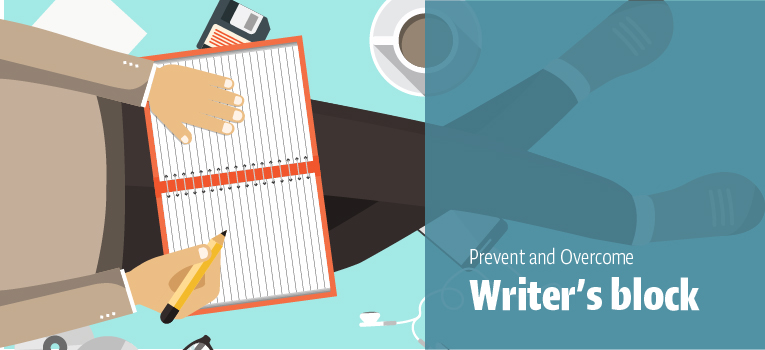By Michelle De Berardinis
Writer’s block is an all-too-common nightmare that every writer faces in their career. But it doesn’t have to be if we learn how to cope and accept it for what it is – a completely normal part of the writing process!
We often make our writer’s block worse by reacting negatively. Too often we immediately get down on ourselves or try to fight it. Neither of these are workable solutions. This piece will go over a few preventative strategies as well as how to overcome it when it does happen.
Relax, Take a Break!
The first thing to do when you experience writer’s block is to take a deep breath, remind yourself that this is normal.
You should ideally take an extended break from your project if you can. Close your computer or notebook and do something fun.
If you’ve been working on it for a long time, leave it for the rest of the day and let your brain recharge. You will be looking at your work with a fresh set of eyes the next day and everything will flow much easier. If you’re on a tight deadline, then at least give yourself a 20-minute break to relax; you’ll still reap some of the benefits.
Give Yourself Time, Set a Schedule
The best way to prevent a major writer’s block from happening in the first place is to avoid unnecessary stress, which means giving yourself ample time. It is also important to account for extra time towards the end to edit and proofread your work until you feel that it’s perfect. I strongly suggest that you make a schedule for yourself where you dedicate a certain time every day towards writing with no distractions. With a set schedule, procrastination is less likely to happen. And less procrastination means less stress!
Create an Outline
Also, be sure to create a structured outline of what you plan to write before you begin writing. If you have all your main points outlined beforehand, the whole writing process will be a lot easier. In fact, you should be spending more time planning and researching than on the actual writing process.!
Proper time management and planning will put you into a calmer and empowered state of mind whenever you sit down to write, which decreases the chances of major writer’s block from occurring in the first place!
Write First, Edit Later
Writer’s block often stems from anxiety and a fixation with making your writing perfect the first time around. The more you try to make your first draft perfect, the whole process will be much more difficult. It’s a lot better if you lay out all your ideas on paper, even if it’s disorganized. If you followed the previous steps by giving yourself ample time with a proper schedule, you will have many opportunities to edit before the due date. Editing makes your writing slightly better each time, so you should keep doing it to every draft until it feels right.
Skip Tricky Words and Sentences
If you find yourself getting hung up over a single word or sentence, just write what you are generally trying to say in a different coloured font to make it stand out. Alternatively, you can put a blank line to show that you couldn’t find the right wording for that part while reminding yourself to fix it later. Try focusing on the next part of your piece in the meantime, it’s never worth getting flustered over a tiny idea. Consider this to be a mini writer’s block, which is much less difficult to overcome since it can be temporarily ignored.
If you follow these steps, I can assure you that writer’s block will happen less often, and when it does, you will equip yourself with the proper strategies to deal with it. Remember, it happens to even the most successful writers. What makes them successful isn’t their perfection, but their ability to plan and adapt, which is great news for you! It means that there is always room for improvement.
Best of luck with your writing!



Recent Comments